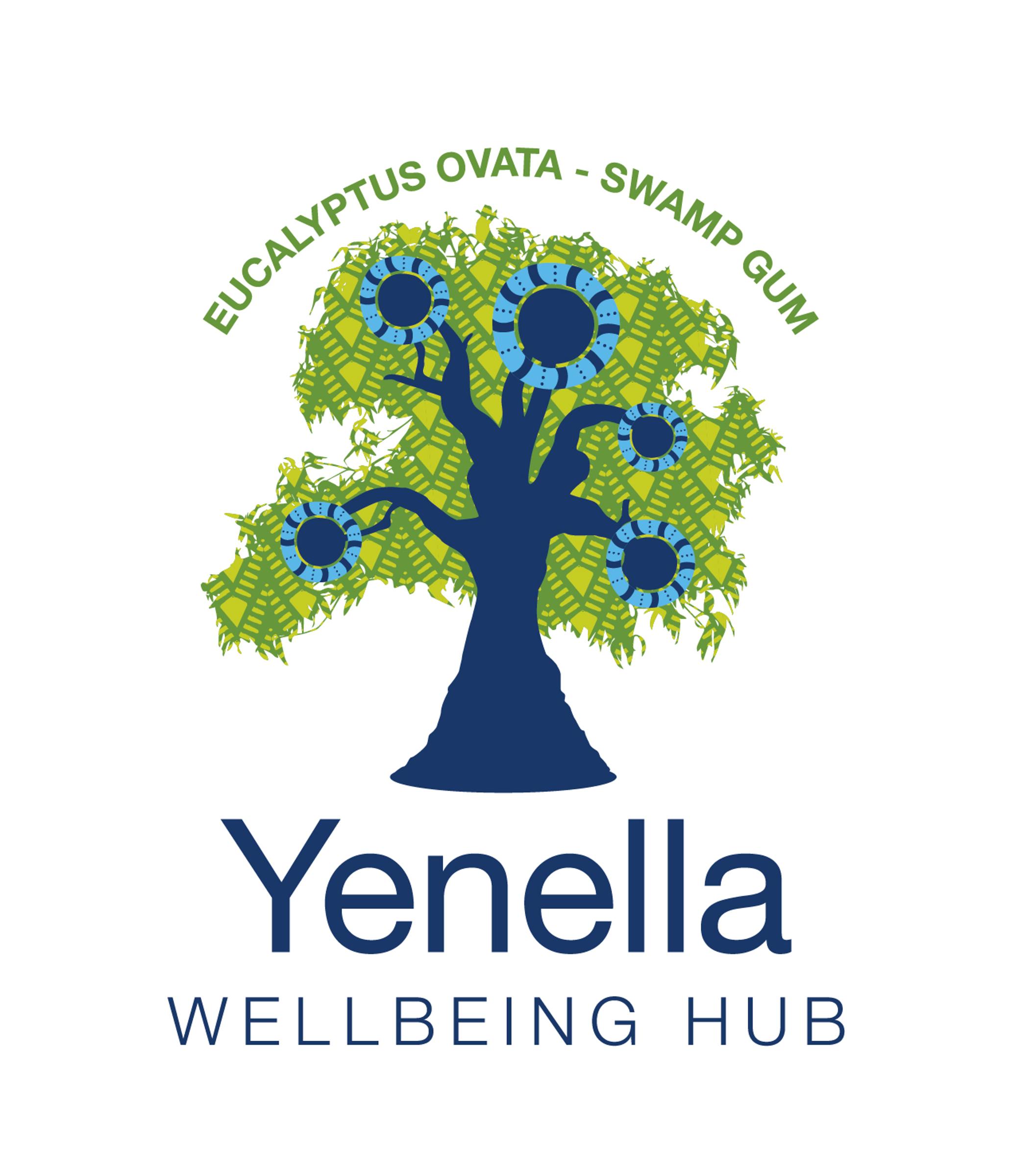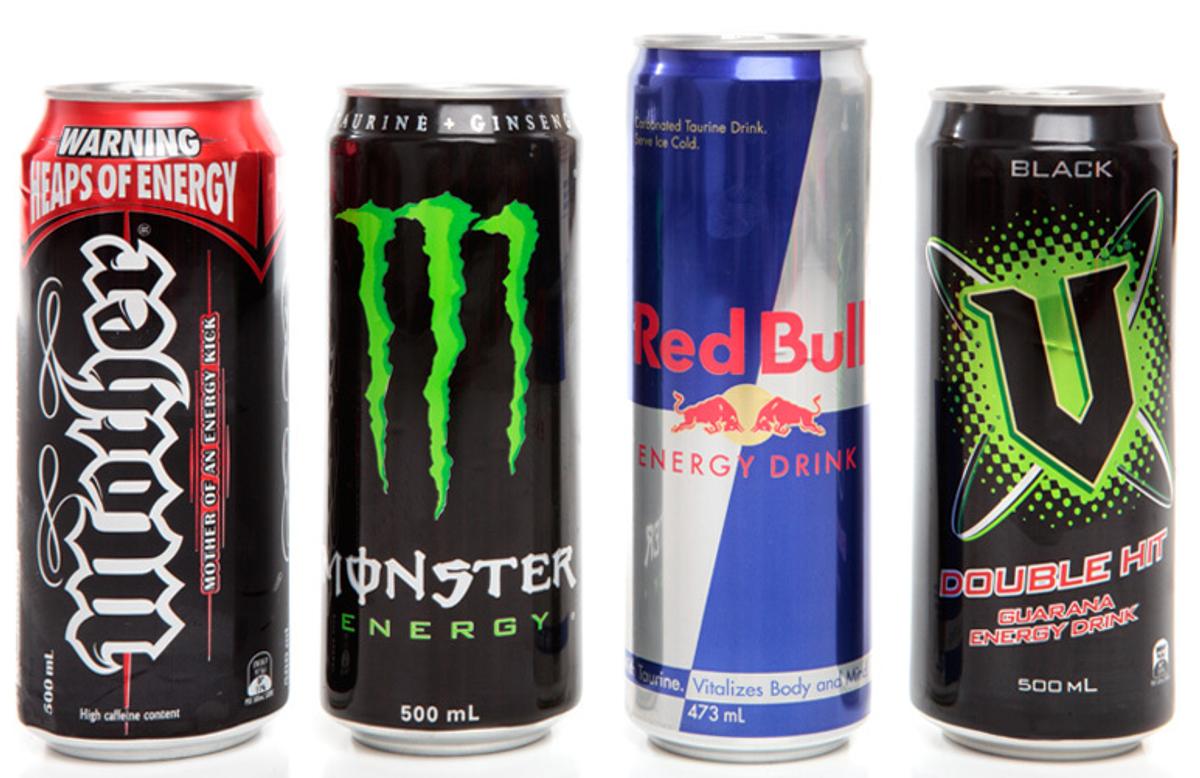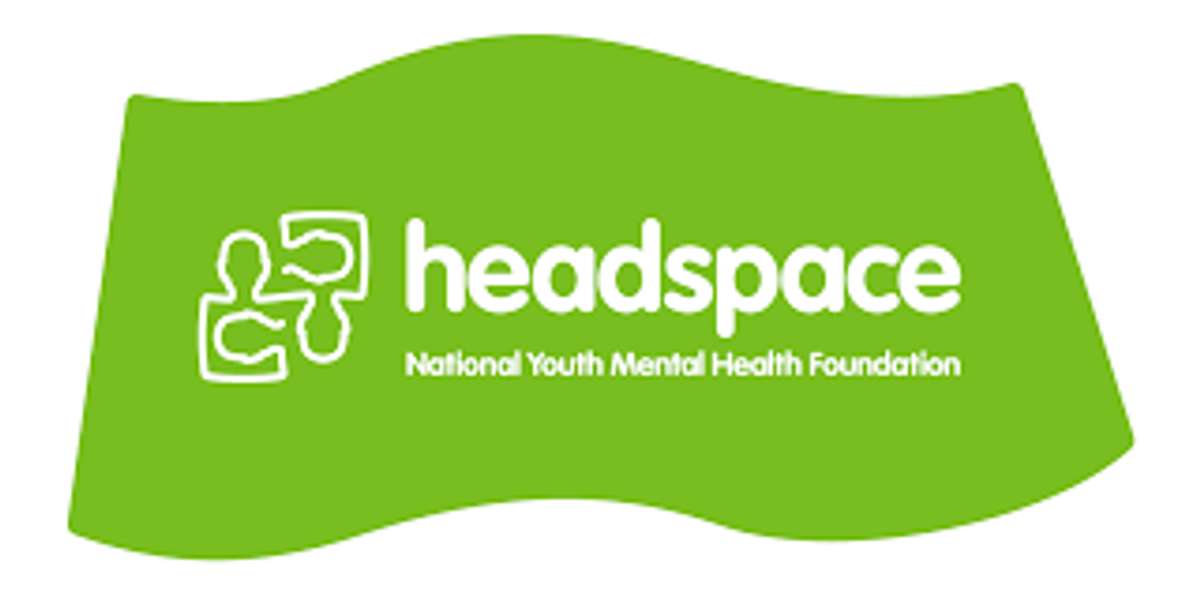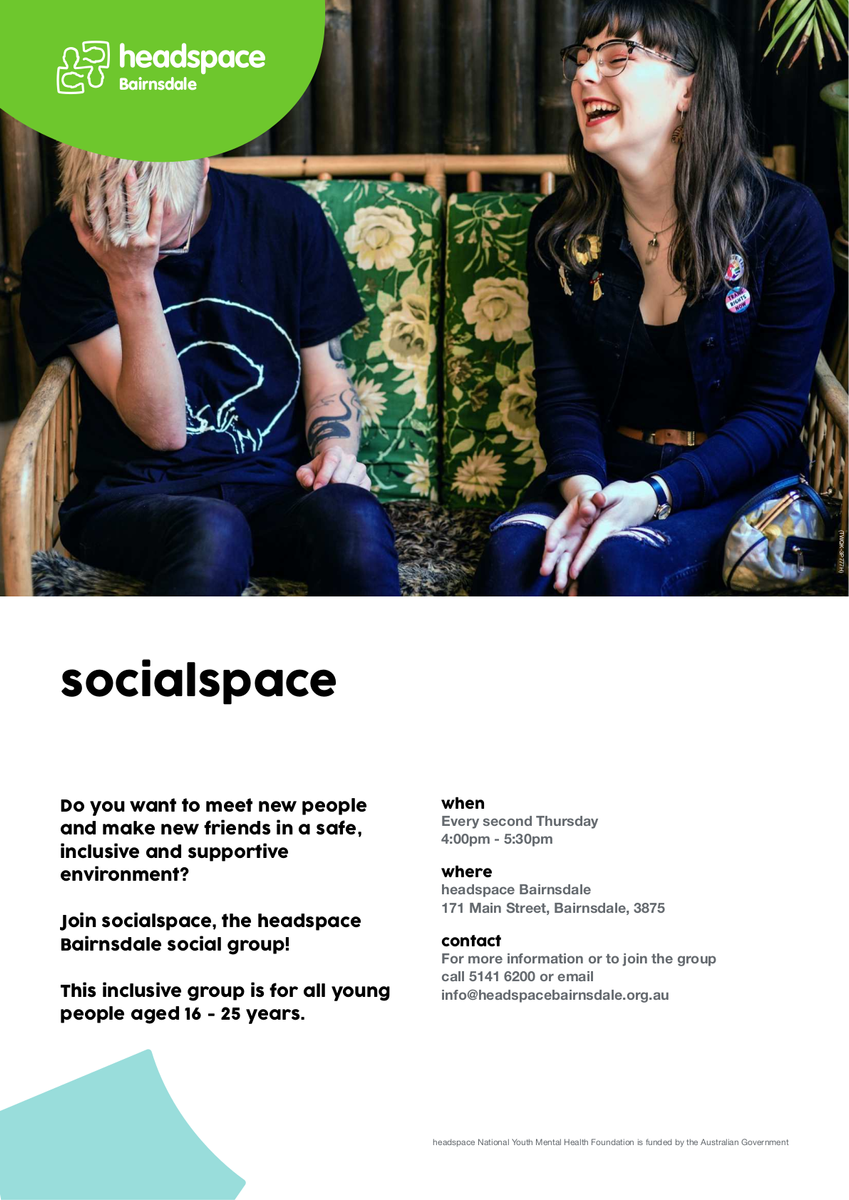Wellbeing

ENERGY DRINKS
You may have seen the ads showing how energy drinks can ‘give you wings’ but the harms associated with them will quickly bring you back down to earth. Energy drinks are now aggressively marketed to young people as a way to get an energy boost with the benefit of increased physical and mental performance, and sales are up. This increase in sales is causing concern from parents, teachers and health professionals who are seeing a rise in negative health effects and risky behaviours among children and young people who drink energy drinks.
Negative effects of energy drinks on young people
While drinking energy drinks is common among young people (particularly males), little is known about how much they can safely drink. What is known, however, is the damaging effects these drinks can have. Headaches, insomnia, tiredness, irritability, stomach aches and hyperactivity are just some of the effects that have been linked to young people who consume energy drinks. Another concern is nutrition and sleep – both particularly important during adolescence when major growth is occurring. Longer-term issues include tooth decay, obesity and Type 2 diabetes. And, energy drinks have also been linked to high-risk behaviours in young people, including smoking, alcohol and other drug use, fighting and impulsive risk taking.
Are there benefits to drinking energy drinks?
While energy drink producers make many claims about the benefits of energy drinks, including: increased sporting performance and endurance; improved reaction time; mental alertness and concentration; and, improved stamina and overall wellbeing, there is limited scientific evidence to support these claims.
What’s in an energy drink?
Energy drinks, such as Red Bull, V Energy and Monster Energy, are non-alcoholic and usually contain large amounts of caffeine and sugar. They’re also often combined with taurine, glucuronolactone, guarana, and B vitamins, and marketed to young people as having a performance-enhancing and stimulant effect.
Taurine
Taurine is an amino acid that helps build protein and is found in meat, fish, dairy products and human milk. Some studies suggest taurine may improve athletic performance – there is little evidence to support this.
Glucuronolactone
Glucuronolactone is a naturally occurring chemical produced by the body and found in plants. It helps remove harmful substances from the body. There’s been limited research conducted on glucuronolactone so it’s unclear whether its inclusion in energy drinks is harmful or beneficial.
Guarana
Guarana is a plant that contains caffeine – 1 gram of guarana contains between 40 and 80mg of caffeine (an espresso contains 60mg caffeine). Guarana’s interaction with the other ingredients in energy drinks makes its effects last longer than caffeine.
Caffeine
Caffeine is a stimulant that occurs naturally in a range of plants. When consumed it results in:
- increased urination
- increased energy and attention
- increased body temperature
- faster breathing and heartrate
- increased production of stomach acid.
In both children and adults, too much caffeine can cause:
- nervousness
- irritability and anxiety
- difficulty sleeping
- tremor
- rapid heartbeat
- palpitations
- upset stomach.
The verdict on energy drinks
There is growing evidence that energy drinks may be harmful to some people. In particular, it’s recommended that kids under 10 years of age should avoid energy drinks, and young people should not drink them excessively. If you’re unsure or would like further advice, consult your doctor or other health professional. For more information, visit Energy drinks—Do they really give you wings? - Alcohol and Drug Foundation (adf.org.au)
THE GREAT OUTDOORS!
How getting outside can help you (and your mind) get fit
Being in nature can be one of life’s simple pleasures. Lying in a shaded spot feeling cool blades of grass against our skin and catching a breeze with the scent of autumn. Wherever we live, we all have the ability to experience the great outdoors. And when we do, moving our body can be good for us, too. Many of us can relate to feeling better once we’re able to step outside and take a deep breath. It turns out that breathing in outdoor air can do more for our health than we might realize. Research shows that stress levels can decrease significantly after spending just 15 minutes out and about in green spaces. Bringing a sense of awareness when we’re outside is an opportunity to slow our mind and bring our attention to what we’re experiencing in the moment. We’re not walking around lost in thought; we are present, observing our surroundings, in terms of the sights, sounds, and smells around us and how they make us feel. We are, in short, more connected to the world around us.
HEALTH BENEFITS OF BEING OUTDOORS
It helps you relax
Whether you’re stressed, anxious or angry, spending time outdoors is a simple, yet effective, mood booster. Also known as ecotherapy, getting out in nature takes us back to our beginnings as humans. Go for a walk and take in the sights, smells and textures along the way – this will help to distract you from negative or reoccurring thoughts and centre you to the present. Another one of the health benefits of being outdoors is being exposed to natural light. Not only will this make you happier, but it will also improve your sleep and general wellbeing.
It exercises your body
Physical activity lightens your mood, helps you to lose weight, raises energy levels, promotes sleep, and helps to release/lower stress or anxiety. Even something as simple as strolling around the park or exploring some woodland is a great form of exercise. While it’s easy to think that all the magic happens in the gym, that’s not always the case. It’s important that we balance our indoor time with enough fresh air too, and exercising outdoors is something that humans have done for thousands of years.
It boosts your immune system
Another one of the physical benefits of spending time outdoors, is its immune boosting qualities. It is believed by scientists that breathing in the chemicals produced by plants, or phytoncides, increases the level of white blood cells in our bodies, and therefore helps us to fight viruses and infections. What’s more, being exposed to higher levels of vitamin D supports the immune system, as well as our bones and blood cells.
It improves your focus
While the activity of walking can provide clarity, the benefits of being outdoors don’t end there. It’s said that the ‘greenness’ of our surroundings can help restore focus. Even a five- or ten-minute walk can help you to concentrate better.
It’s a chance to be social
While walking solo is important, spending time outdoors also allows us to reconnect with friends and family in a natural, easy way. Ever noticed that you tend to greet more people when you’re on a walk? One of the great benefits of outdoor activities is the chance to restore a sense of community and friendship – with people we know or friendly strangers.
These holidays, make it a priority to spend some time in the great outdoors. East Gippsland is a nature lovers paradise so get out there and explore our beautiful region! Here are just a few activities to try:
Fishing – Recreational fishing is not only relaxing, but also improves concentration, teaches patience, and help support social connections. Fishing spots are in abundance throughout the region and you can drop a line from the beach, jetty, riverbank, or for the more adventurous, take a chartered trip or hire your own boat.
Walking/Hiking – East Gippsland lays claim to many varied walking/hiking opportunities. From beach walks, boardwalk strolls or meandering through the forest, there's a walk to suit everyone’s preference or fitness level.
Water Activities – With waterways like ours, activities in and above the water are plentiful and varied. Hire a boat for the day or hop aboard one of the scenic wildlife tours on offer; launch the canoe, kayak or SUP and appreciate the views whilst gliding along, or perfect your surfing skills and catch a wave at one of the many breaks along the ocean shoreline.
Birdwatching – Boasting a diverse array of landscapes from the rainforests to the shoreline, East Gippsland is home to a magnificent range of bird life. Challenging and rewarding, bird watching doesn’t just stimulate the senses, but also teaches patience and can create moments of wonder that you wouldn’t normally experience.
Other outdoor activities to try at home:
Gardening - Gardening is a way to focus our attention on what we’re experiencing outdoors, specifically the beauty, change, and growth that a garden shows us. Caring for a garden can also be an exercise in gratitude, a practice that can lead us to an overall sense of happiness and well-being.
Alfresco dining – As well breathing in the fresh air and appreciating all that nature has to offer, an outdoor picnic helps to form bonds with family and friends, let go of stress and create some happy memories.
Walking the dog - if you have a canine companion within your household, dogs generally love nothing more than going for walks. Not only is it essential for their exercise requirements but it also improves socialisation (for you both), provides them with mental stimulation, and strengthens bonding between you and your pet.
Just ‘being’ outdoors - Sometimes, simply making contact with and taking in the atmosphere of a green space can be beneficial for our health. Green spaces can provide a sense of calming and grounding, giving us the same opportunity to connect with nature by lying down on some grass, planting our feet in the soil, or sitting by a tree.
SOCIAL GROUPS







